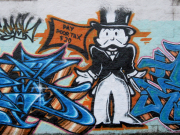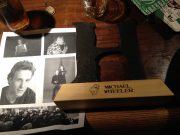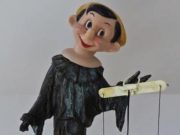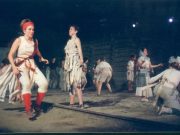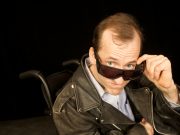Diversity + Theatre Form
My hope is that we can move forward also dealing with diversity in form. That our perceptions and our expectations of what theatre can look like will not have to fit into the Western or European constructs that most of us learned in theatre school and/or the proven model that is selling tickets to the aging subscription audience.
Theatrical Oligopoly
Stratford is focused on a Englishman from the 16th and 17th century. Shaw is focused on their namesake, his contemporaries and plays that occur within his lifetime. Soulpepper’s mandate is perform “modern classics”. These mandates, in the hands of the country's most powerful companies, keep the artistic resources of some of our best artists tied up in the work of writers who are predominantly men, predominantly white, predominantly dead.
Briefing Notes for Hiring Committees
This may be just the first wave of some significant changeover in leadership. In the arts community, we talk about change a lot – and this is an opportunity for organizations to be transformed from the top down. Will some of these positions go to women and/or artists of colour and/or artists with disabilities?
No, seriously, who make up the 1% in the arts?
Michael: The problem is then governments turn around and are like, “we invested X # of dollars in the arts last year” but really it is circulating amongst a few players and it goes without saying it never trickles down to artists.
Devon: I think our best option is a renewed focus on living artists / core creators. I am unsure about open inter-tribal warfare. Like what are the limits if we start fighting with each other for resources?
Harolds 2.0
Unlike so many of the theatre events I had attended, The Harolds seemed hardwired to oppose the status quo. Swearing: Check. Disdain for value-affirming theatre: Check. Mad respect for artists that aren’t mainstream and all the other people that are required to create theatre from stage managers to volunteers: Check. What kind of amazing Anarcho-Communists were funding this enterprise –and why hadn’t I heard about them before?
Money or Power Please and Thank You
I don’t like award shows. I don’t like any award shows. I don’t like what they represent. I don’t like how they suggest it is possible to judge one film or play or performance or song against another. I don’t like their in-group back slappery, or how they all seem to be trying for some representation of American showmanship and the Oscars.
CAPS LOCK FOR HAROLD
I mean the guy rarely made sense and yet, when he did, it cut through all the bullshit like only a true fool could do. I basked in his attention (whether wanted or not) and I can assure you that being heckled by Harold during a Toronto performance made us feel as though we had arrived. That we were noteworthy. That we had a Harold Heckle story to tell.
Artivist?
We held post-show panel discussions with local advocates, donated a portion of tickets to two local organizations supporting and advocating for sex worker rights, and hosted an interactive website where you could learn more about our local sex trade through mini documentaries. I wrote to my local MP and posted regularly online to spread the word about how our laws were affecting these women’s lives. I felt this sense of accomplishment like I was opening people’s minds or something… And maybe I did. But was that enough? Does that qualify as activism?
Comedy and Theatre as Disability Activism
My theatre practice represents my contribution to both disability activism and to theatre and performance. I join the long line of Canadian disabled artists such as David Freeman, Persimmon Blackbridge, and Lyle Victor Albert, whose work frame impairment and disability in terms of identity and culture. Much of my work focuses on masculinity, disability, and sexual relationships. Through the use of dramatic narrative, comedy and movement aesthetics, I strive to present impairment and disability as valid parts of identity, as critical sources of artistic exploration, and to expose social barriers.
In and Out of the Queer Theatre Closet
I’m someone who has enough conventional signifiers in place that I get all the privileges that a straight, white, married, procreative, able-bodied professional woman can get in this racist, hetero-patriarchal world, Although I know how to accuse the world of hetero-patriarchy, I still benefit from that oppression every day. I feel like I just don’t deserve to call myself stuff. Stuff like queer. Stuff like survivor. I am so straight-seeming that sometimes people forget that I’ve told them I do gay things, like fuck women.







